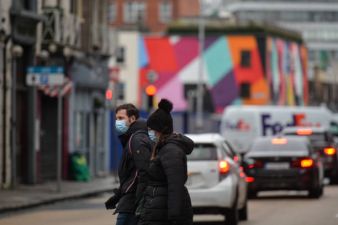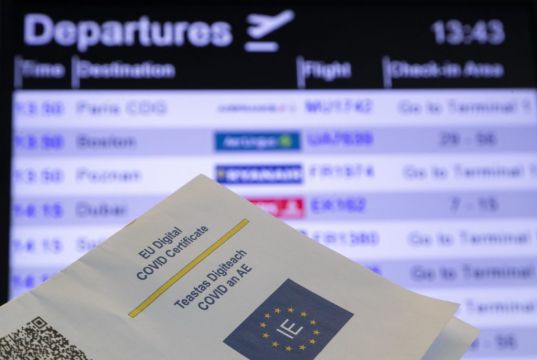Irish people can jet off on foreign holidays again, with non-essential international travel resuming from July 19th.
The Government's official guidance has changed from asking people to avoid non-essential travel to advising them to travel safely and in line with public health guidelines.
For travel within the European Union and European Economic Area, a digital Covid certificate system is in place for citizens. Here is what you need to know about the process.
What do I need to do before leaving Ireland?
If you are travelling within the EU, you should check which restrictions are in place in the country you are travelling to. The EU's ReOpen website has the most up-to-date information on each country.
If you have been vaccinated or had a Covid-19 test in Ireland, you can get an EU digital Covid certificate.
You can still travel without the EU certificate but it does make travelling within Europe easier.
If you are travelling outside of the EU, you should check the travel restrictions in that country on the Department of Foreign Affairs website.
Public health advice for those who are unvaccinated remains to avoid high risk activities, including international travel.
What is the EU digital Covid certificate?
The EU digital Covid certificate takes the form of a QR-code, which indicates if a traveller has been fully vaccinated against Covid-19, has received a recent negative test result or has immunity due to recent recovery from a Covid-19 infection.
It is free of charge and valid in all EU countries. Irish citizens who are fully vaccinated began receiving the certificate by email and post last week.
The system also extends to non-EU countries of the border-free Schengen zone – Iceland, Liechtenstein, Norway and Switzerland.
The certificate is already in use in the rest of the EU – Ireland is the last member state to fully implement the system.
How should I store the digital certificate?
The EU digital Covid certificate can be printed out or stored on your phone.
The certificate arrives in PDF format when emailed so can be saved on a device or easily printed out.
It can also be stored on the Government's official Covid Tracker app.
What is the coronavirus situation in other EU countries now?
As of July 18th, Cyprus, Spain and Portugal are the countries with the highest Covid infection rates in the EU and Schengen zone.
All are experiencing surges of the Delta variant – Cyprus recorded its highest daily number of cases since the pandemic began on Tuesday.
Catalonia in Spain, which includes Barcelona, and the Algarve in Portugal are among the regions with the highest Covid rates in Europe, according to official data collated by the World Health Organisation.
Portugal on Thursday extended Covid restrictions to a wider area of the country, including tourist areas such as the Algarve.
Europe-wide, the Channel Island of Jersey has the highest rate currently, followed by regions in the north of England.
And what do I need to return to Ireland?
If you're arriving back in Ireland from a country within the EU or the Schengen zone, you will need to complete a Passenger Locator Form in advance.
You can fill it in online and it will be checked prior to departure by your airline or ferry company.
On the form, you have to indicate if you are travelling with either proof of vaccination, proof of recovery from Covid-19 in the past 6 months, or proof of a negative PCR test taken within 72 hours of arrival.

An EU digital Covid certificate can work as the proof needed to complete the form.
Some EU countries accept a negative result from a rapid antigen test as valid proof. However, Ireland will only accept a negative PCR test to enter the country.
From July 19th, children between the ages of 12 and 17 will be required to have a negative PCR test taken within 72 hours prior to arrival to travel into the country, unless they have valid proof of vaccination or recovery.
The Government says spot checks will be carried out on digital Covid certificates, other proof of vaccinations and negative PCR tests on passengers arriving in Ireland. – Additional reporting: Reuters







